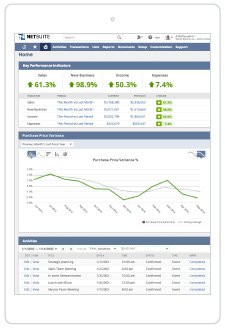NetSuite for Enterprises
In a fast-moving, constantly changing global economy opportunities wait for no one. Agility, speed and flexibility are essential in getting operations up and running fast following the launch of new products or services, acquiring or merging companies, entering new markets or geographic expansion. For large enterprises burdened by an on-premise ERP system, such swiftness can be elusive.
The enterprise platform for any business model
ERP | CRM | Ecommerce | PSA
NetSuite, the world’s leading provider of cloud-based Financials/ERP and Omnichannel commerce solution, is designed to help global enterprises meet their complex functional, industry, regulatory and tax requirements. NetSuite has unlocked a whole new world of possibility for global enterprises. Across every industry, every business type (B2B, B2C or B2X), in every part of the world, we enable your team to stay agile and flexible.

We enable small businesses to solve their biggest challenges

MERGERS,
ACQUISITIONS,
DIVESTITURES
MERGERS, ACQUISITIONS, DIVESTITURES

UNIFIED
BUSINESS
INSIGHTS
Unified Business Insights

NEW PRODUCTS,
MARKETS,
CHANNELS
NEW PRODUCTS, MARKETS, CHANNELS

BUSINESS
MODEL
INNOVATION
BUSINESS MODEL INNOVATION
20 percent of the Fortune 100 use NetSuite





Business Travel runs its
entire global financial
operations with OneWorld
multi-national agribusiness
in the cloud
manufacturer, is expanding into China with
two-tier ERP
across 15 countries with
OneWorld
































